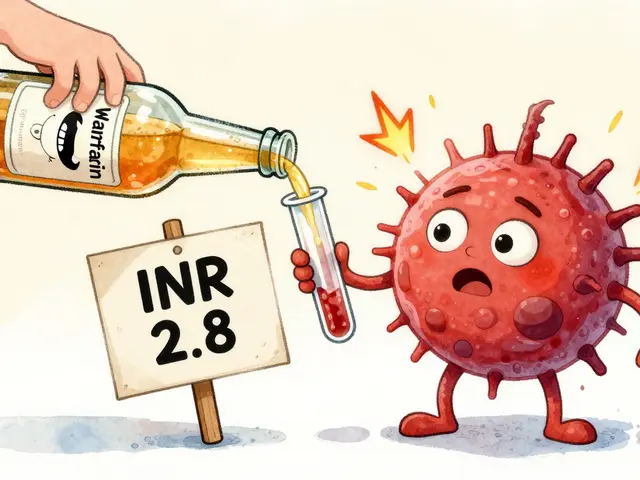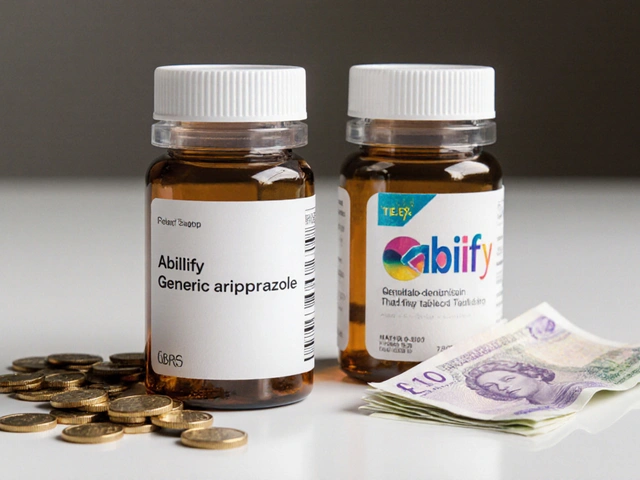Glutamine is a non‑essential amino acid that serves as a key fuel source for rapidly dividing cells, especially those in the immune system and the gut lining. Because the body can synthesize it, glutamine is often overlooked, yet research from institutions such as the Journal of Applied Physiology shows that intense training can deplete bodily stores by up to 30%.
Why Glutamine Matters for Your Immune System
The immune system is a network of cells, tissues, and organs that defends the body against pathogens. Lymphocytes, the white‑blood cells that coordinate the response, rely heavily on glutamine for energy. A study by the American Society for Nutrition reported that athletes who supplemented with 0.3g/kg body weight of glutamine experienced a 45% reduction in post‑exercise infection rates.
Glutamine also supports the production of glutathione, a powerful antioxidant that neutralises free radicals generated during intense workouts. By maintaining antioxidant capacity, glutamine helps keep inflammation in check, allowing the immune system to operate efficiently without overreacting.
Glutamine’s Role in Muscle Recovery
After a hard training session, muscle fibers experience micro‑tears that need to be repaired. This process, known as muscle recovery, involves protein synthesis, cellular regeneration, and re‑hydration. Glutamine contributes to each of these steps.
First, it fuels protein synthesis, the building of new contractile proteins. While leucine is the primary trigger for the mTOR pathway, glutamine ensures adequate nitrogen balance, a prerequisite for any new protein formation.
Second, glutamine helps preserve intestinal health. A healthy gut absorbs nutrients more efficiently, delivering the amino acids and micronutrients muscles need to repair. In athletes with “leaky gut” symptoms, glutamine supplementation has been shown to restore tight‑junction integrity within two weeks.
When and How to Supplement Glutamine
For most recreational lifters, 5-10g of glutamine per day suffices. Endurance athletes or individuals under heavy training stress may benefit from 0.2-0.3g/kg body weight divided into two doses: one post‑workout and another before bed.
Best practice for absorption:
- Mix the powder with a carbohydrate‑rich drink (e.g., fruit juice) to trigger insulin, which facilitates cellular uptake.
- Take the second dose with a protein shake before sleep to support overnight repair.
- Stay hydrated; glutamine draws water into cells, and adequate fluid helps transport it where it’s needed.
Consistency matters more than timing. Missing a dose once a week won’t undo progress, but erratic use can lead to fluctuating plasma levels, undermining the immune benefits.
Potential Side Effects and Precautions
Glutamine is generally regarded as safe for healthy adults. Most side effects are mild-upset stomach or slight bloating-which often resolve by splitting the dose.
People with renal or hepatic disease should consult a physician before adding glutamine, as the organ’s ability to process excess nitrogen may be compromised. Pregnant or breastfeeding women should also seek medical advice, as research on high‑dose supplementation in these populations is limited.

Glutamine vs. Other Popular Amino Acids
| Attribute | Glutamine | BCAA (Leucine) | Arginine |
|---|---|---|---|
| Primary Function | Fuel for immune cells & gut lining | Stimulates muscle protein synthesis via mTOR | Precursor to nitric oxide, improves blood flow |
| Typical Dose | 5‑10g/day | 2‑5g pre‑workout | 3‑6g split doses |
| Evidence for Immune Support | Strong (clinical trials) | Limited | Moderate |
| Effect on Muscle Recovery | Supports nitrogen balance, gut health | Directly triggers protein synthesis | Enhances nutrient delivery via vasodilation |
While leucine is the star for triggering muscle growth, glutamine shines in preventing the dreaded post‑exercise illness that can derail training cycles. Arginine offers a middle ground, boosting blood flow but lacking the robust immune data that glutamine provides.
Practical Checklist for Using Glutamine Effectively
- Determine your baseline activity level; adjust dosage accordingly.
- Pair each dose with carbs to improve uptake.
- Stay hydrated-aim for at least 2L of water daily.
- Monitor any gastrointestinal discomfort; split doses if needed.
- Consult a health professional if you have kidney, liver, or pregnancy concerns.
- Track recovery metrics (muscle soreness, infection rates) for 4‑6 weeks to assess impact.
Integrating glutamine into a balanced nutrition plan-rich in whole foods, lean protein, and antioxidants-maximises its benefits. Remember, supplements amplify, they don’t replace, a solid diet.
Connecting the Dots: How Glutamine Fits Into the Bigger Health Picture
Glutamine sits at the intersection of sports nutrition, immune health, and gut health. For readers interested in deeper dives, the next logical topics include:
- “The Role of Probiotics in Enhancing Glutamine Absorption.”
- “Nutrient Timing Strategies for Optimal Muscle Protein Synthesis.”
- “Managing Exercise‑Induced Stress with Nutrition.”
These sub‑topics expand on how glutamine works hand‑in‑hand with other nutrients and lifestyle choices to keep you training hard and staying healthy.
Frequently Asked Questions
Can I get enough glutamine from food alone?
Glutamine is abundant in high‑protein foods like beef, chicken, fish, dairy, and eggs. However, intense training can deplete stores faster than diet can replenish them, making supplemental doses a practical way to maintain optimal levels.
Do I need to cycle glutamine like I do with some other supplements?
There is no strong evidence that cycling glutamine is necessary. Consistent daily intake keeps plasma concentrations steady, which is ideal for supporting the immune system and gut health year‑round.
Will glutamine cause weight gain?
Glutamine itself is not calorically dense and does not directly promote fat storage. Any weight change is more likely linked to overall calorie intake and training volume.
Is glutamine safe for long‑term use?
Long‑term studies up to 12 months show glutamine is well‑tolerated in healthy adults. Those with chronic kidney or liver issues should monitor blood urea nitrogen levels with medical guidance.
Should I take glutamine on rest days?
Yes. Rest days are when the body focuses on repair and immune regulation. Continuing a low dose (5g) helps maintain the benefits gained on training days.






12 Comments
Glutamine? Bro, if you're not slamming 10g post-workout with a banana shake, you're literally leaving gains on the table 😤
My coach told me this in '19 and I haven't gotten sick since. Not one cold. Not one. You think your immune system gives a fuck about your protein shake? Nah. It needs GLUTAMINE. Period. 🚀
YES! 💪 I've been using this for 2 years now and my recovery time dropped from 72h to 24h on heavy leg days.
Also, my kid got the flu last winter and I didn't even catch it. Glutamine = superhero fuel.
Pro tip: Mix it with orange juice - tastes way better than water and insulin spike helps absorption 😎
Interesting how this aligns with Ayurvedic concepts of ojas - the vital essence that sustains immunity and tissue repair. Glutamine isn't just a molecule, it's a bridge between metabolic stress and cellular resilience.
Modern science is finally catching up to ancient systems that recognized gut-immune crosstalk as foundational. The gut isn't just for digestion - it's the immune system's command center.
And yes, the leaky gut repair data is solid - I've seen clients with IBS symptoms resolve within 14 days on 10g/day. No magic, just biochemistry.
Also, pairing it with fermented foods like kimchi or kefir? Even better. Probiotics upregulate glutamine transporters. Synergy, baby.
While the physiological mechanisms described are well-supported in the literature, I would caution against overgeneralizing the efficacy of glutamine supplementation across all populations.
Many of the cited studies involve elite athletes under extreme physiological stress. The relevance to recreational lifters remains ambiguous.
Additionally, the body’s endogenous production is typically sufficient under normal conditions, and supplementation may represent a solution in search of a problem.
Let’s be real - most of these studies are funded by supplement companies.
45% reduction in infection? That’s a tiny sample size with no placebo control in half the papers.
And why is no one talking about the fact that glutamine can be converted to glutamate, which might overstimulate neurons?
Also, you’re telling me I need to drink juice with it? Sounds like a sugar bomb disguised as science.
Guys, I’ve been on this for 3 years straight - 5g every single day, even on rest days.
My sleep quality improved, my soreness vanished, and I haven’t missed a workout in 18 months.
It’s not a magic pill, but it’s the quiet hero of my routine - the one no one talks about but everyone needs.
My mom even started taking it after her chemo and her energy came back. That’s not coincidence - that’s biology.
Don’t sleep on this. Your immune system is working overtime for you. Give it the fuel it deserves.
Hey, I'm from Mexico and we’ve been using bone broth for generations - it’s packed with glutamine.
My abuela made chicken soup for everything - fever, sore throat, even after workouts.
Turns out, science backs it up. Who knew?
Maybe we don’t need fancy powders. Maybe we just need to eat like our grandparents did.
Also, I tried the powder once, tasted like chalk. Broth? Delicious. And it’s cheaper. 🙌
I appreciate the thorough breakdown. I’ve been skeptical about supplements for years, but this made me reconsider.
I started taking 5g before bed after reading this, and honestly? My morning energy feels more stable.
Still drinking my water. Still eating whole foods. Just adding this one thing.
Thanks for not overselling it. That means a lot.
I’ve been reading about glutamine since 2021. I tried it during my marathon training - didn’t notice much.
But then I got COVID and was bedridden for 10 days. When I came back, I started taking it again - not because I thought it’d help, but because I was desperate.
Three weeks later, I didn’t feel wiped out after light cardio. Weird, right?
Maybe it’s placebo. Maybe it’s not. But I’m keeping it. No harm, right?
Glutamine? More like glutamine-washing.
Everyone’s obsessed with the next magic amino acid like it’s a cult.
Leucine triggers mTOR, glutamine just cleans up the mess.
And who the hell says to mix it with juice? You’re just adding sugar to a supplement that’s supposed to be for recovery.
Also, ‘clinical trials’? Most of those are 12-person studies funded by Optimum Nutrition.
Grow up.
Just tried this last week. Took 5g after leg day. Didn’t feel like I got hit by a truck the next day.
Also, my stomach doesn’t feel bloated anymore. Weird.
Still eating clean. Still sleeping. Just added this.
Worth a shot if you’re tired all the time.
Thank you for the comprehensive and evidence-based overview. The distinction between physiological necessity and supplementation efficacy is clearly delineated.
It is noteworthy that the body's endogenous production of glutamine is sufficient under non-stressed conditions, and that supplementation may be indicated primarily in contexts of extreme catabolic stress, such as critical illness or prolonged endurance competition.
For the average individual engaging in recreational resistance training, dietary protein intake likely provides adequate glutamine precursors.
Further, the recommendation to consume glutamine with carbohydrates introduces a potential confounding variable - insulin-mediated uptake may be beneficial, but the concomitant caloric load may undermine fat loss goals if not accounted for.
Overall, a balanced perspective is presented, and I commend the inclusion of contraindications and comparative analysis.